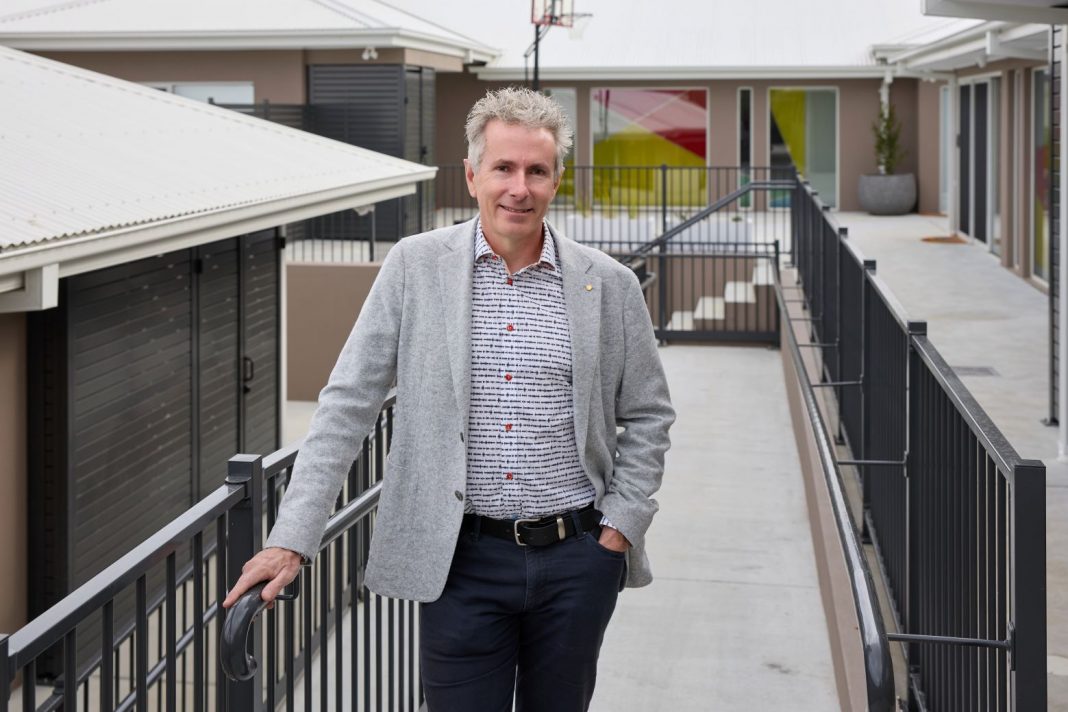As the stepfather of a young man with an intellectual disability, Martin Fisk OAM is thrilled with his new job: running a charity that supplies housing to intellectually disabled people – the least likely demographic to own their own home anywhere in Australia.
“It’s an opportunity, it’s a challenge, and it’s a privilege all at once,” Mr Fisk said.
The former Menslink head took up the position as CEO of Project Independence last week, but he has been aware of, and supported, its work for eight years.
“A grandparent of one of the residents who I know very well got in touch with me when she heard that the previous CEO had left, and said: ‘You need to get in touch with Glenn Keys [AO, co-founder and managing director], because this would be a perfect job for you. You know what, I think it is.”
Project Independence might be the only organisation anywhere in the world that gives people with intellectual disabilities the chance to own their own homes. The charity lends them an interest-free loan to buy shares in a residence, run as a company; the residents pay off the loan, using a percentage of their Disability Support Pension. Because the loan is interest-free, residents do not need to worry about interest rates going up, Mr Fisk explains.
“This is their home; they own it. They’re not just placed there and [told to] stay there. They have financial security, but also amazing pride of ownership.”
Project Independence owns three properties in Canberra – Latham, Harrison, and one in Phillip, which the charity’s patron, Governor-General David Hurley AC, DSC, FTSE, opened last month. Some of the residents proudly showed Mr Fisk their homes last week, “sparkles in their eyes”.
“Being able to go out to the residences and meet the residents was an amazing experience,” Mr Fisk said. “Their individual homes are wonderful, and it was an honour to be taken through them.”
Each Project Independence residence has 10 units with communal areas and a live-in residential co-ordinator, who provides meals.
“My understanding is that in a lot of the group homes, you only get effectively a bedroom, with a shared bathroom and a shared kitchen – really like flatmates,” Mr Fisk said. “What we have is a larger environment for them. Each resident has more like a one-bedroom apartment than a studio or an individual bedroom.
“One of our residents said: ‘This is so fantastic: I have my own bathroom, I’ve got my own sitting-room, and I can lock the door if I just want to be by myself.’…
“As a step-parent of somebody with intellectual disabilities, we want them to be independent. We want them to grow and thrive, and build their own lives, with support from family, but not dependent on family. The Project Independence model gives them a pathway to that.”
That was why Mr Keys, who has a son with Down syndrome, set up Project Independence in 2012. (Mr Keys is co-founder and Managing Director of Aspen Medical.)
But the waiting list is “astronomical”, Mr Fisk says: more than 50 people in Canberra, and more than 200 in Melbourne. Determined to extend its model to the rest of the country, the charity is raising funds to refurbish its first property in Melbourne, and building its first Sydney residences, at Frenchs Forest.
“I’m hoping to really build and grow [Project Independence],” Mr Fisk said. “I want to make sure that our existing residents are looked after in the best possible way we can, while also trying to make meet the demand that is clearly out there.”



